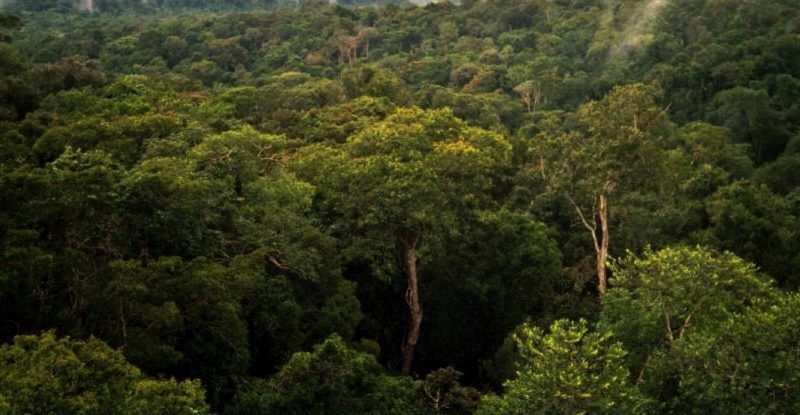Demand for Brazilian soybeans is threatening the Amazon

While the effect of the US-China trade war on the Amazon rainforest aren’t obvious, tariffs are a real threat to the world’s biggest rainforest.
The US is the biggest producer of soybeans in the world, and China is the world’s largest importer – with approximately one-third of all Chinese soybean’s being imported from the US.
The tradewar though has caused American soybean sales to China to decline by 94% from last year’s harvest.
With this sharp decline in US soybean sales, China has been forced to look for new soybean suppliers to satisfy their high demand.
Brazil, being the second highest producer of soybeans in the world, is the obvious next choice to fill the gap.
We’ve already begun to see the shift. In stark contrast to the US, Brazil’s exports to China are on the rise, increasing from 6.6 million tonnes to 8.2 million tonnes in just one year.
For Brazil, it seems like a fantastic trade opportunity and a chance to boost the local agricultural industry, a viable means to help bring locals out of poverty.
However, despite the fact that soybean production has become a seriously profitable revenue stream for Brazil, it is now threatening the nation’s previously lauded environmental commitments, especially those related to protecting the Amazon rainforest.
The agricultural industry is the main catalyst behind the deforestation of the Amazon, logging or burning huge sections to clear landing for farming. Conservation efforts saw deforestation at an all-time low in 2011, but sadly deforestation rates in Brazil have been escalating again over the past five years.
The Amazon accounts for more than half of the planet’s remaining rainforest and is home to more than half the world’s species of plants and animals.
Beyond the importance of protecting this huge range of biodiversity, the Amazon is also necessary for the planet’s survival. Nicknamed the ‘lungs of the planet’, the rainforest currently cleans the air by absorbing and converting carbon dioxide. It’s estimated that the Amazon produces 20% of our world’s oxygen.
However, as deforestation continues, the less carbon dioxide is absorbed. This compounds the greenhouse effect, essentially speeding up global climate change. To effectively reach global emissions targets and reduce global warming, Brazil needs to be focused on replenishing the Amazon, not cutting it down.
However, with the new financial opportunities provided by the US and Chinese trade war, farming and soybean production agenda is being pushed over conservation efforts harder than before.
Bolsonaro, the newly elected Brazilian president has already indicated he supports the agribusiness lobby and would consider lifting development restrictions on the Amazon. The president elect has even said that he would consider merging the agricultural and environmental industries in government.
Despite scientists and world leaders unanimously agreeing that Amazon is worth more intact than destroyed, as the world’s future and our survival literally depends on it – the current political situation is sadly seeing the long-term environmental consequences being put aside in favour of the short-term economic gain, yet again.
Demi Barclay is a marketing and research officer for Trade Machines.
To reach hundreds of thousands of new readers we need to grow our donor base substantially.
That's why in 2024, we are seeking to generate 150 additional regular donors to support Left Foot Forward's work.
We still need another 117 people to donate to hit the target. You can help. Donate today.



